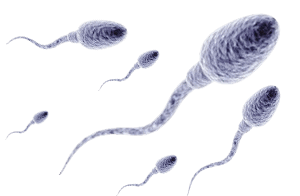Examination methods of men
In some men, sperm quality deteriorates due to a poor lifestyle. They may not be able to reach the egg, or have a limited ability to penetrate the egg and fertilize it. Thus, male fertility depends primarily on the quality, number and movement of sperm.
However, other factors such as genetic load, immune reactions, hormone production disorders, obstruction of the excretory tract, inability to ejaculate, inflammatory diseases of the excretory tract of the male genital tract, etc. can also reduce male fertility.
In some cases, the cause may not be revealed at all. The basis is the examination of the spermiogram. This consists of taking ejaculate by masturbation, before which it is recommended to observe three days of sexual abstinence. The ejaculate is examined for the presence of sperm – their number, movement and morphological structure are evaluated.
BASED ON THE RESULT OF THE SPERMIOGRAM, THE DOCTOR WILL RECOMMEND YOU THE MOST SUITABLE METHOD OF ASSISTED REPRODUCTION.
